This article was co-authored by Alex Dimitriu, MD. Alex Dimitriu, MD is the Owner of Menlo Park Psychiatry and Sleep Medicine, a clinic based in the San Francisco Bay Area with expertise in psychiatry, sleep, and transformational therapy. Alex earned his Doctor of Medicine from Stony Brook University in 2005 and graduated from the Stanford University School of Medicine's Sleep Medicine Residency Program in 2010. Professionally, Alex has dual board certification in psychiatry and sleep medicine.
There are 21 references cited in this article, which can be found at the bottom of the page.
wikiHow marks an article as reader-approved once it receives enough positive feedback. This article received 17 testimonials and 80% of readers who voted found it helpful, earning it our reader-approved status.
This article has been viewed 473,608 times.
Whether you pulled an all-nighter to study for a test or you're just a regular night owl, you may be wondering how you can make it through the day on little or no sleep. It'll be hard to stay awake without dozing off, but not impossible. These tips will help you make the most of your day after staying up all night.
Steps
Maintaining Your Energy
-
1Eat breakfast. Studies have shown that people who eat a healthy, balanced breakfast in the morning are more alert and energetic than those who skip breakfast.[1]
- Aim for foods high in protein, like eggs, tofu, yogurt, or peanut butter. Or choose nutrient-rich food options like oatmeal and fresh fruit. These foods will fuel your body through the day and give you the energy you need to stay awake and active.
-
2Drink coffee or tea. Caffeinated beverages can help you combat sleepiness and make you feel more wakeful and energetic.[2] And drinking coffee or tea can bring plenty of health benefits, too. These naturally caffeinated beverages are chock full of antioxidants[3] , and recent studies suggest that drinking coffee can even decrease your risk of developing depression.[4]
- Don't drink too much! Excessive caffeine consumption can cause anxiousness and irritability. Drinking too much coffee can also interfere with your ability to have a good night of sleep after you make it through the day.[5]
- Opt for coffee over energy drinks. An 8 oz. cup of coffee typically contains more caffeine than the same serving size of most energy drinks.[6]
Advertisement -
3Stay hydrated. Drinking enough water is important to maintain your body's natural functions, and dehydration can actually make you feel even more tired.[7]
-
4Chew ice. The physical act of chewing keeps your body awake, and ice comes with the additional benefits of being refreshing and hydrating.[8]
-
5Take a snack break during the day. Snacks high in protein and vitamins, like nuts or fresh fruit, can help give you an energy boost between meals when your body starts to drag.[9]
-
6
-
7
Staying Active
-
1Get in a light workout. Even a short, brisk walk can help wake you up and give you the energy you need to make it through the day.[16]
-
2Spend some time in the sun. Experts have found that being immersed in natural light can increase wakefulness and make you feel more alert as you go through your day.[17]
-
3Change your environment. If possible, work with the windows open to allow fresh air to enter, and try listening to music to keep you going.[18]
Managing Your Time
-
1Make a list. Plan out everything you need to do during the day, and arrange them in order of importance. This will help you remember everything you need to get done. It will also give you a sense of capability and provide you with a visual reminder of both what you've accomplished and what tasks remain.[19]
-
2Work efficiently. Aim to get your most challenging or complex tasks done earlier in the day, when you have more energy.[20]
-
3Reward yourself with a break. Disengaging from homework, studying, or work projects for a short period of time can improve productivity by making you feel more refreshed and recharged, and it can motivate you to get through your next set of tasks.[21] .
-
4Return to your normal sleep schedule. After pulling an all-nighter, it's important to return to your regular habits. Go to bed around the time you normally would, or perhaps a little earlier than usual, and set your alarm for the same time you would normally wake up.[22]
Expert Q&A
-
QuestionWhat do you do when you accidentally stay up all night?
 Alex Dimitriu, MDAlex Dimitriu, MD is the Owner of Menlo Park Psychiatry and Sleep Medicine, a clinic based in the San Francisco Bay Area with expertise in psychiatry, sleep, and transformational therapy. Alex earned his Doctor of Medicine from Stony Brook University in 2005 and graduated from the Stanford University School of Medicine's Sleep Medicine Residency Program in 2010. Professionally, Alex has dual board certification in psychiatry and sleep medicine.
Alex Dimitriu, MDAlex Dimitriu, MD is the Owner of Menlo Park Psychiatry and Sleep Medicine, a clinic based in the San Francisco Bay Area with expertise in psychiatry, sleep, and transformational therapy. Alex earned his Doctor of Medicine from Stony Brook University in 2005 and graduated from the Stanford University School of Medicine's Sleep Medicine Residency Program in 2010. Professionally, Alex has dual board certification in psychiatry and sleep medicine.
Sleep Medicine & Psychiatry Professional If you need to stay awake, try to keep yourself distracted and engaged. Boredom can make you feel sleepier.
If you need to stay awake, try to keep yourself distracted and engaged. Boredom can make you feel sleepier. -
QuestionHow long does it take to recover from an all-nighter?
 Alex Dimitriu, MDAlex Dimitriu, MD is the Owner of Menlo Park Psychiatry and Sleep Medicine, a clinic based in the San Francisco Bay Area with expertise in psychiatry, sleep, and transformational therapy. Alex earned his Doctor of Medicine from Stony Brook University in 2005 and graduated from the Stanford University School of Medicine's Sleep Medicine Residency Program in 2010. Professionally, Alex has dual board certification in psychiatry and sleep medicine.
Alex Dimitriu, MDAlex Dimitriu, MD is the Owner of Menlo Park Psychiatry and Sleep Medicine, a clinic based in the San Francisco Bay Area with expertise in psychiatry, sleep, and transformational therapy. Alex earned his Doctor of Medicine from Stony Brook University in 2005 and graduated from the Stanford University School of Medicine's Sleep Medicine Residency Program in 2010. Professionally, Alex has dual board certification in psychiatry and sleep medicine.
Sleep Medicine & Psychiatry Professional Around 5-7 days of good sleep is required for you to catch up on your sleep debt. Waking up feeling refreshed involves not having a sleep debt, which will likely take more than one night to catch up on.
Around 5-7 days of good sleep is required for you to catch up on your sleep debt. Waking up feeling refreshed involves not having a sleep debt, which will likely take more than one night to catch up on. -
QuestionI am pulling an all-nighter before a 10 hour work shift. I am a server at a casino and only have a 20 minute break. Any tips?
 Chris M. Matsko, MDDr. Chris M. Matsko is a retired physician based in Pittsburgh, Pennsylvania. With over 25 years of medical research experience, Dr. Matsko was awarded the Pittsburgh Cornell University Leadership Award for Excellence. He holds a BS in Nutritional Science from Cornell University and an MD from the Temple University School of Medicine in 2007. Dr. Matsko earned a Research Writing Certification from the American Medical Writers Association (AMWA) in 2016 and a Medical Writing & Editing Certification from the University of Chicago in 2017.
Chris M. Matsko, MDDr. Chris M. Matsko is a retired physician based in Pittsburgh, Pennsylvania. With over 25 years of medical research experience, Dr. Matsko was awarded the Pittsburgh Cornell University Leadership Award for Excellence. He holds a BS in Nutritional Science from Cornell University and an MD from the Temple University School of Medicine in 2007. Dr. Matsko earned a Research Writing Certification from the American Medical Writers Association (AMWA) in 2016 and a Medical Writing & Editing Certification from the University of Chicago in 2017.
Family Medicine Physician You may want to get something small to eat on your 20 minute break, or perhaps you want to take a power nap.
You may want to get something small to eat on your 20 minute break, or perhaps you want to take a power nap.
Warnings
- Don't drive if you're sleep-deprived.⧼thumbs_response⧽
- Avoid staying up all night if you work in an environment where drowsiness could pose a risk to you or others.⧼thumbs_response⧽
- "Microsleeping" is fine as long as you have an alarm or someone to wake you. Be careful as it can make you sleep longer than intended.⧼thumbs_response⧽
References
- ↑ http://www.ncbi.nlm.nih.gov/pubmed/22218013
- ↑ Alex Dimitriu, MD. Sleep Specialist. Expert Interview. 16 October 2019.
- ↑ http://www.health.harvard.edu/family_health_guide/coffees-health-benefits
- ↑ http://www.hsph.harvard.edu/news/hsph-in-the-news/coffee-depression-women-ascherio-lucas/
- ↑ http://www.mayoclinic.org/healthy-living/nutrition-and-healthy-eating/in-depth/caffeine/art-20045678
- ↑ http://www.mayoclinic.org/healthy-lifestyle/nutrition-and-healthy-eating/in-depth/caffeine/art-20049372
- ↑ http://www.mayoclinic.org/diseases-conditions/dehydration/basics/symptoms/con-20030056
- ↑ http://www.businessinsider.com/do-this-when-youre-exhausted-at-work-2015-5
- ↑ http://www.ncbi.nlm.nih.gov/pubmed/21123465
- ↑ Alex Dimitriu, MD. Sleep Specialist. Expert Interview. 16 October 2019.
- ↑ http://www.ncbi.nlm.nih.gov/pubmed/21075238
- ↑ http://www.mayoclinic.org/healthy-lifestyle/adult-health/in-depth/napping/art-20048319?pg=2
- ↑ https://www.sleepfoundation.org/excessive-sleepiness/safety/how-stay-awake-road-tips-combat-drowsy-driving
- ↑ http://healthland.time.com/2013/07/23/why-you-should-eat-breakfast-and-the-best-times-for-the-rest-of-the-days-meals/
- ↑ http://www.urmc.rochester.edu/encyclopedia/content.aspx?ContentTypeID=1&ContentID=503
- ↑ http://sleepfoundation.org/shift-work/content/tips-staying-awake-the-job
- ↑ http://www.huffingtonpost.com/2013/02/25/tricks-waking-up-sleep_n_2718257.html
- ↑ http://www.nzta.govt.nz/resources/factsheets/24/fatigue.html#improve
- ↑ https://www.psychologytoday.com/blog/the-creativity-cure/201403/how-making-lists-can-quell-anxiety-and-breed-creativity
- ↑ http://nymag.com/scienceofus/2014/08/how-to-get-through-a-workday-on-no-sleep.html
- ↑ http://www.nytimes.com/2012/06/17/jobs/take-breaks-regularly-to-stay-on-schedule-workstation.html?_r=0
- ↑ http://healthysleep.med.harvard.edu/healthy/getting/overcoming/tips
About This Article
To make it through the day after an all-nighter, drink caffeinated beverages like tea and coffee to keep your energy up. Additionally, try to drink water consistently during the day since dehydration will make you feel more tired. For a quick boost to your energy, chew ice to keep your body awake or take a quick 15 minute nap. Alternatively, go for a short, brisk walk outside to wake your body up. For more advice from our Medical co-author, like how to be productive after an all-nighter, keep reading!
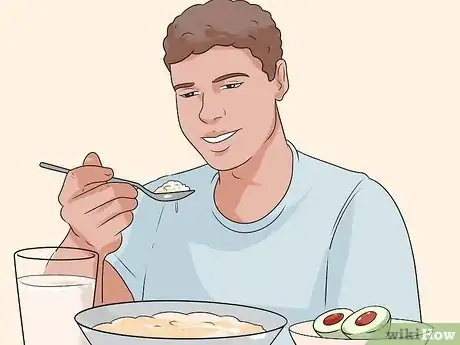
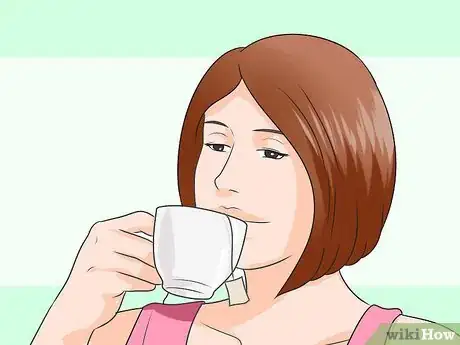

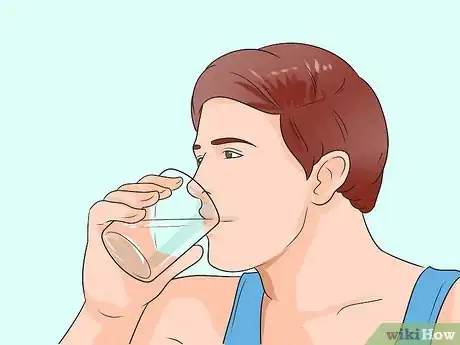
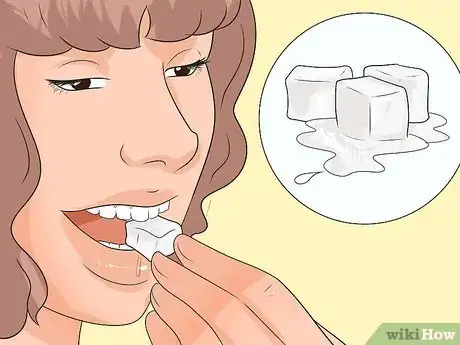



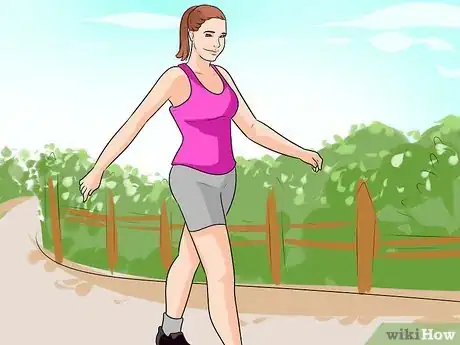
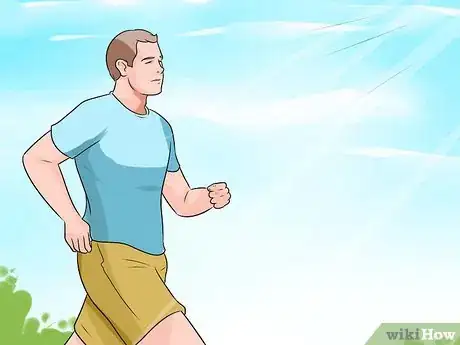

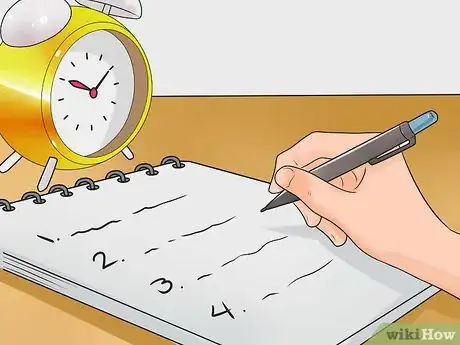







-Step-10-Version-2.webp)
-Step-20.webp)
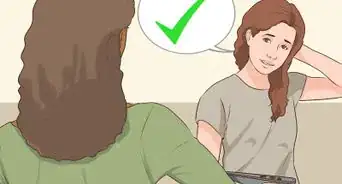
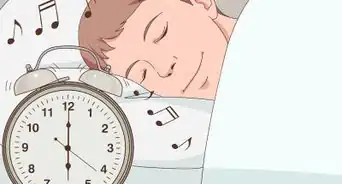


-Step-19-Version-2.webp)
-Step-10-Version-4.webp)

-Step-13.webp)

















































